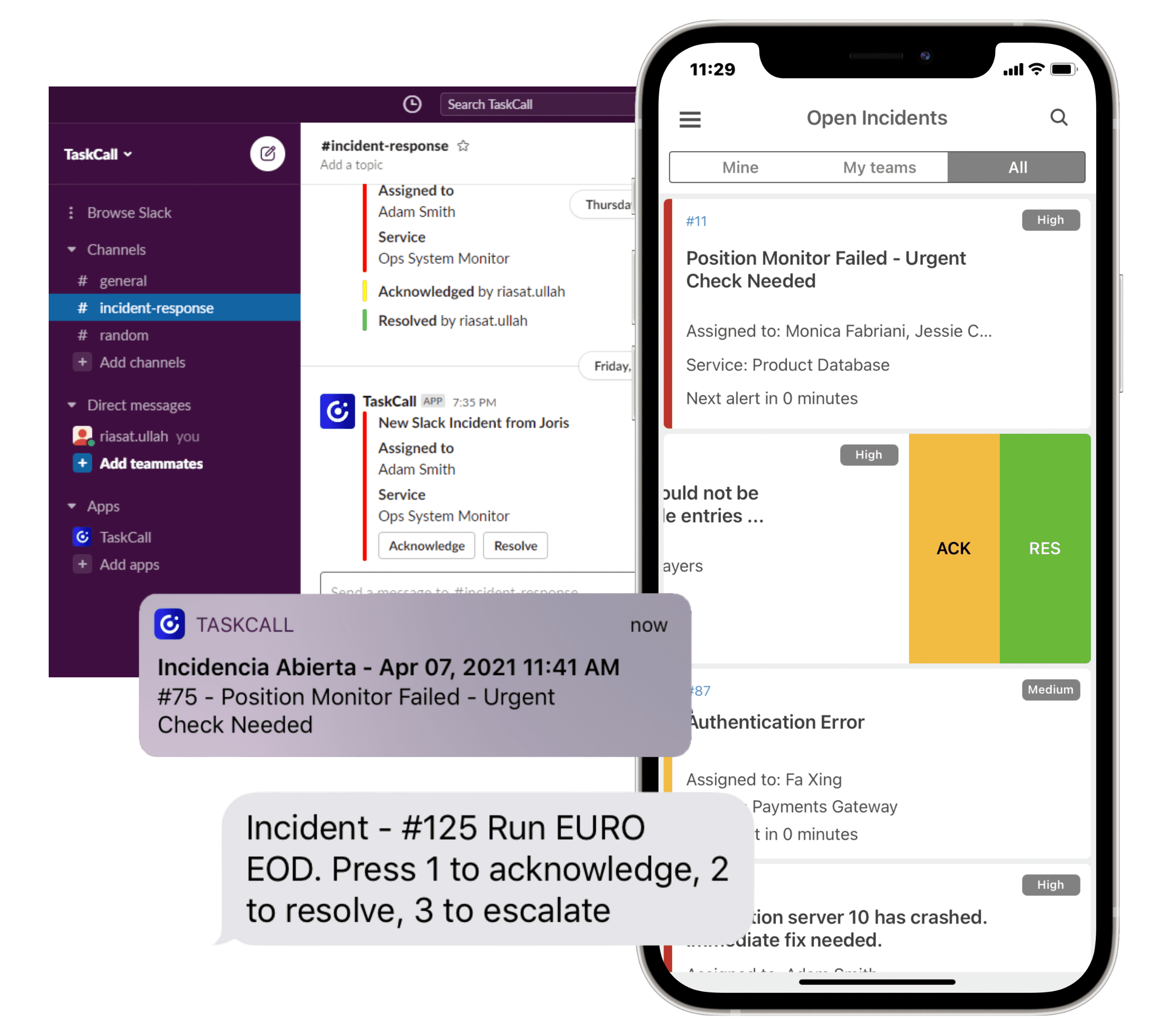Features
Dynamic On-Call Scheduling
TaskCall's on-call management system allows you to create flexible on-call schedules and break down responsibilities for team members by days and hours. Plan out your teams weekly or monthly schedule and let it rotate automatically. No need to manually change schedules every other period. Get access to individual on-call schedules - know when you are going on call next, what your week looks like. Get notified before you are about to go on-call. Never miss your responsibilities.
Learn more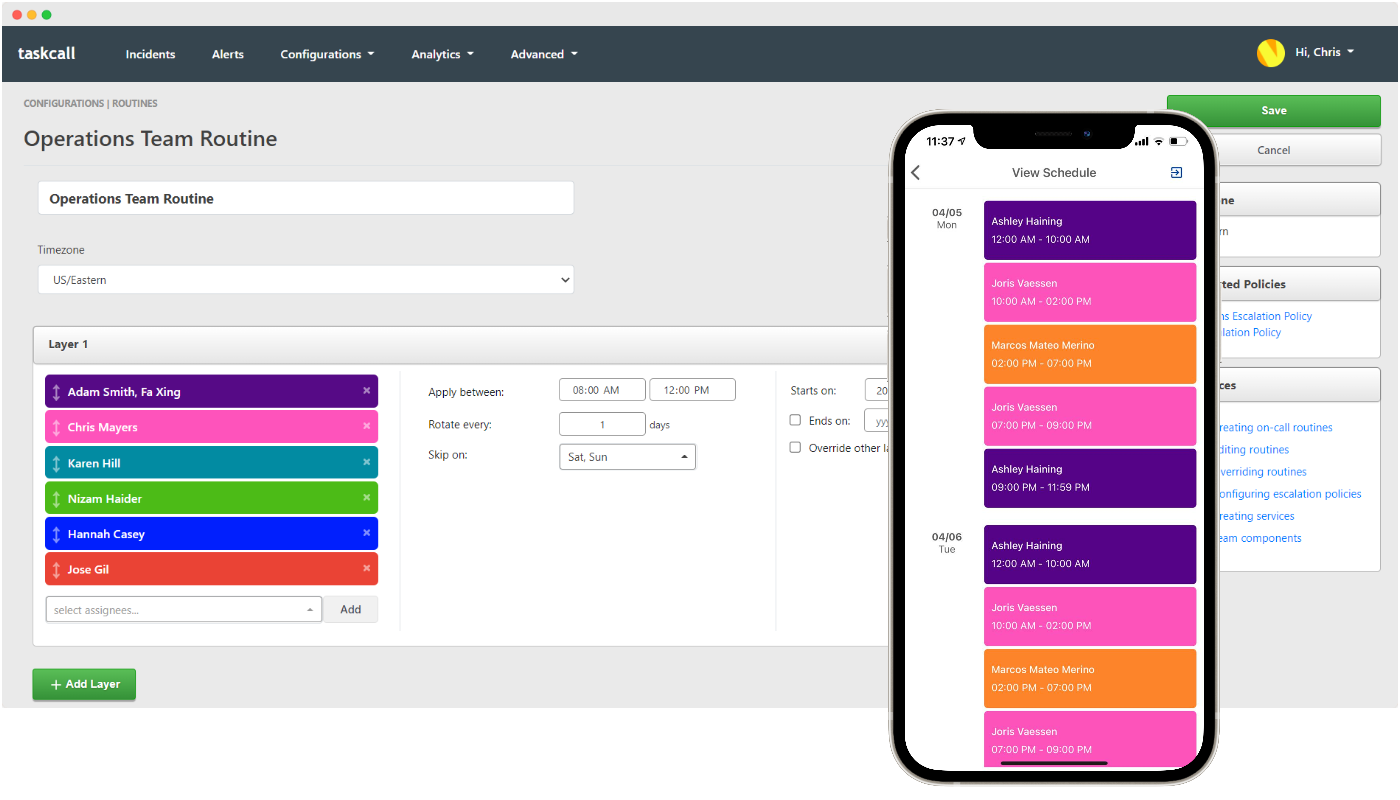
Weekends, Vacations
On-call schedules cannot always stay consistent. Weekend schedules may need to be different from that of the business week. When someone goes on vacation, a temporary change may be needed. TaskCall understands that and enables you to create the dynamic schedule you need without having to make changes to your base schedule. Within the same schedule, allocate differences for the weekend. Create a temporary schedule for a short period of time. Once the period ends, the system will automatically revert to the old schedule. When the temporary schedule is needed again, simply re-enable it without having to make another schedule. Save time and stay consistent with TaskCall's on-call management system.
Learn more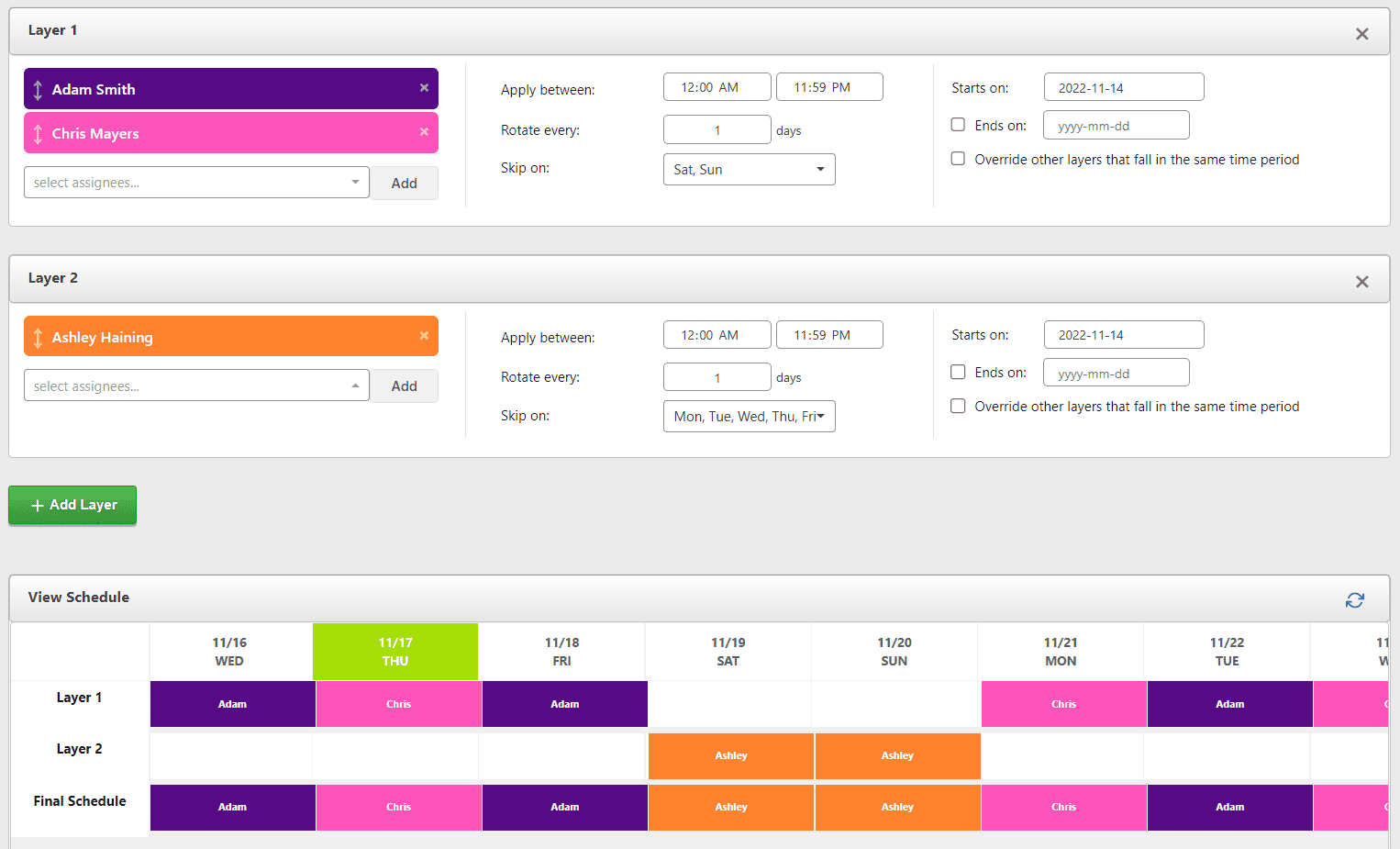
Escalations
A key component of on-call management is ensuring that an incident never falls through the loop without being noticed. It is imperative to introduce layers of escalations so if the primary responder misses the incident by any chance, the secondary on-call responder can fill in. TaskCall takes care of this for you automatically. Create escalation policies by attaching different routines (schedules) to each layer. TaskCall will automatically escalate the incident to the secondary on-call responder if the primary does not respond. Never miss an incident because someone accidentally missed an alert. Shield your system with TaskCall's dynamic on-call management.
Learn more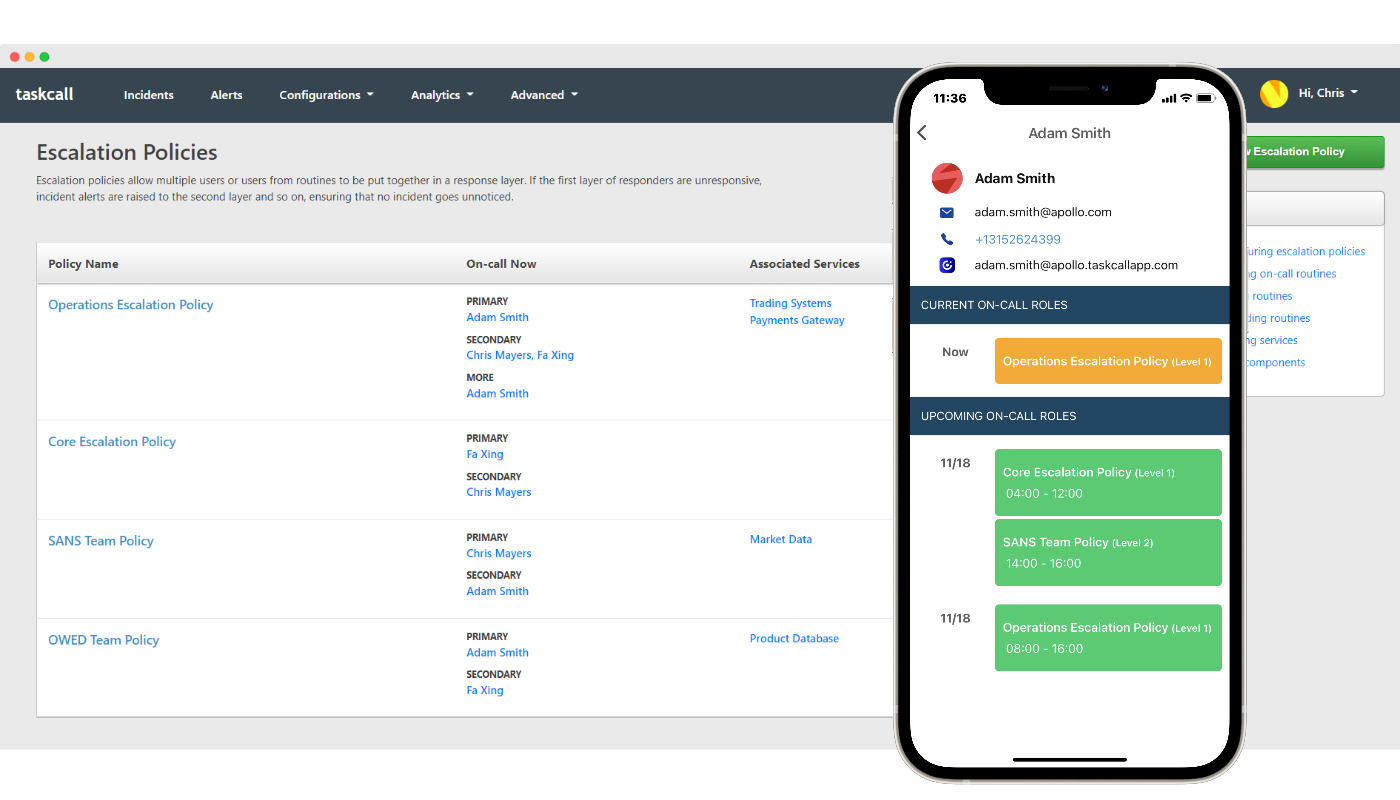
Incident Delegation
Having a static endpoint of communication pipes all alerts to the same channel, making it impossible to delegate tasks to different groups. This is a major bottleneck for dev-ops alert management. TaskCall overcomes this for you by allowing you to replicate your system in a digital environment through configuring services. Each service represents a part of your system. TaskCall delegates incidents to different groups based on what service the indent occurs on. Furthermore, dependencies can be set up between technical and business services to show how they are interconnected. When an incident occurs TaskCall will automatically identify all impacted parts of your system and the firm as a whole. Use TaskCall to improve incident delegation and impact visibility.
Learn more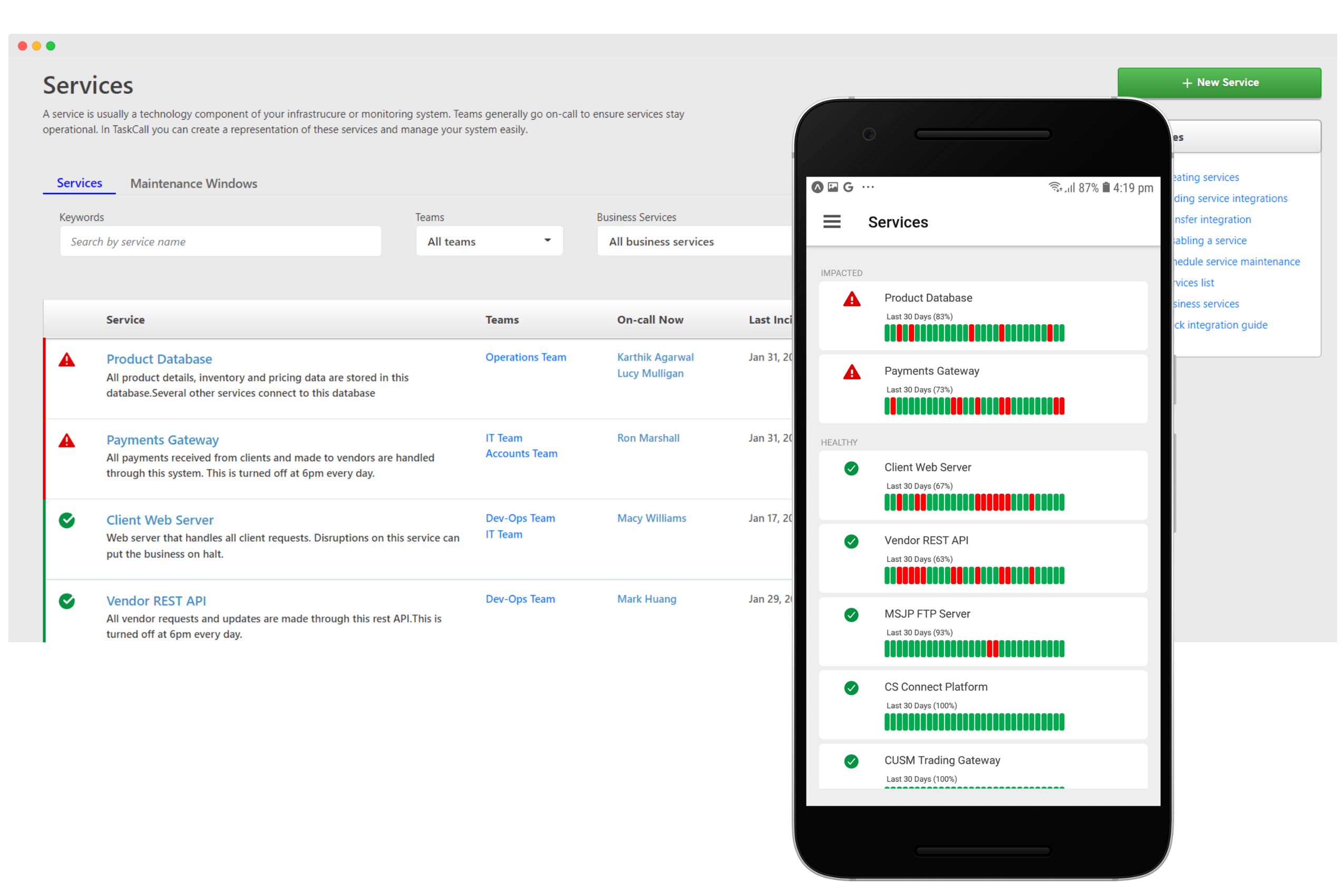
Evaluate On-Call Efficiency
Sophisticated on-call management is not just about assigning incidents to the correct responder. It should take into account how efficient the on-call is at responding to incidents. Can certain types of incidents be resolved faster by someone else or by adding more people? Can a responder be better suited for a different shift? All these are questions TaskCall helps you answer. Get a deep insight into the support behavior of your on-call responders - how responsive they are, how efficient they are and whether they are being over worked. Understand what hours they perform best and shuffle their schedule around as needed. Ensure the well-being of your team.
Learn more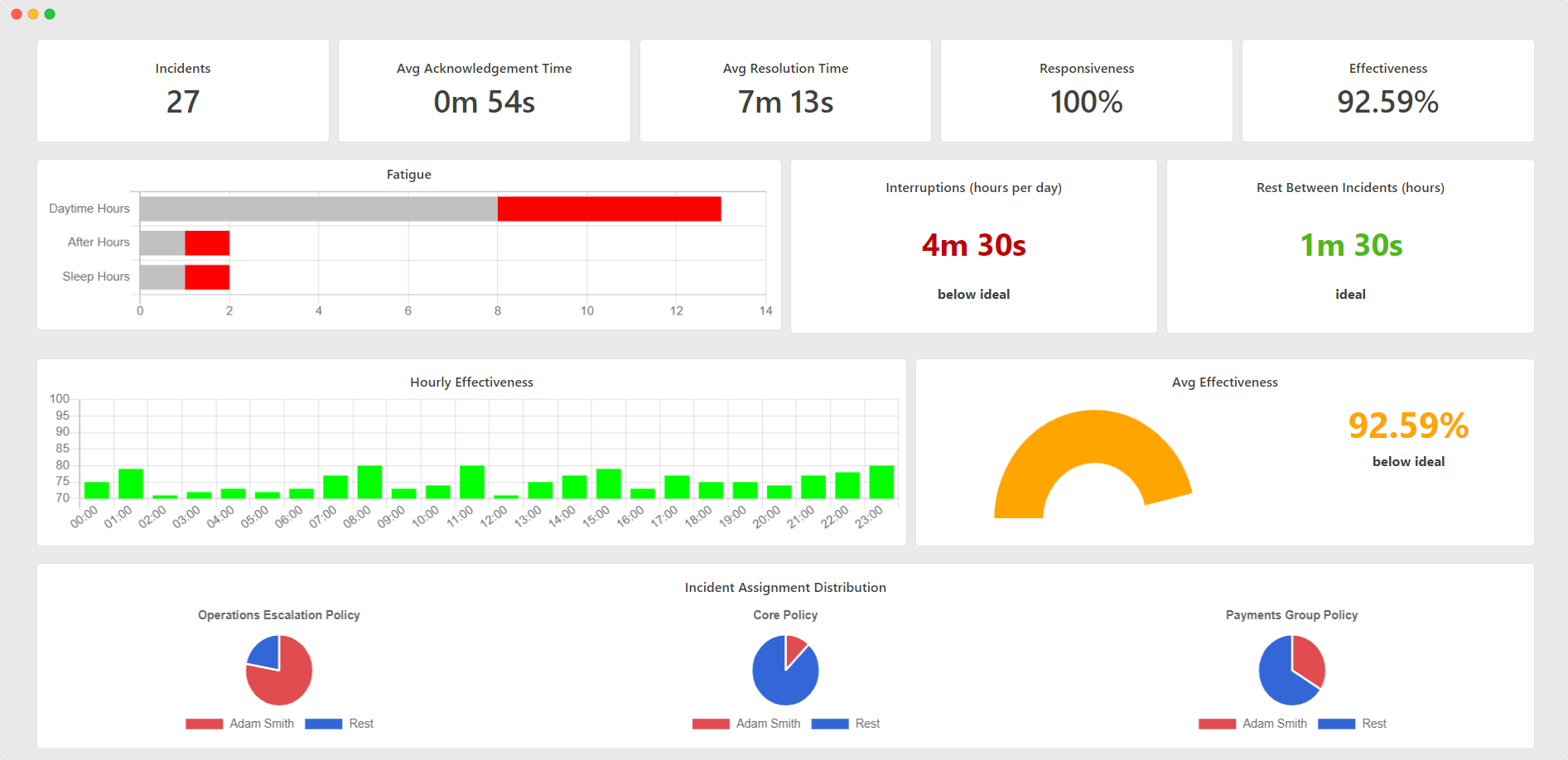
Team Resources
Set up teams with responsibilities and access rights as your team members truly have. Control what incidents and components users can have access to through team delegation. Take ownership of on-call schedules and services that are owned by your teams. Use our team filter views to access incidents that are relevant to your team rather than having to dig through issues across your whole organization.
Learn more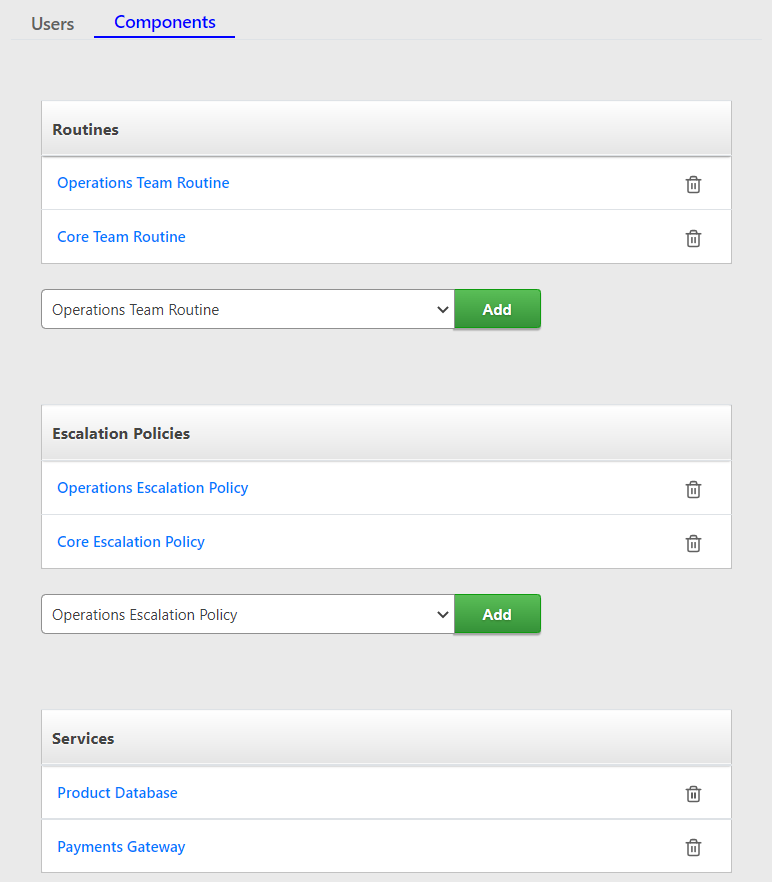
Team Performance
Besides individual metrics, understand how well incidents are handled by each of your teams (departments) as respective groups. Analyze how your team compares with others. Evaluate whether more resources are needed. Use TaskCall's analytics to improve team performance across the board.
Learn more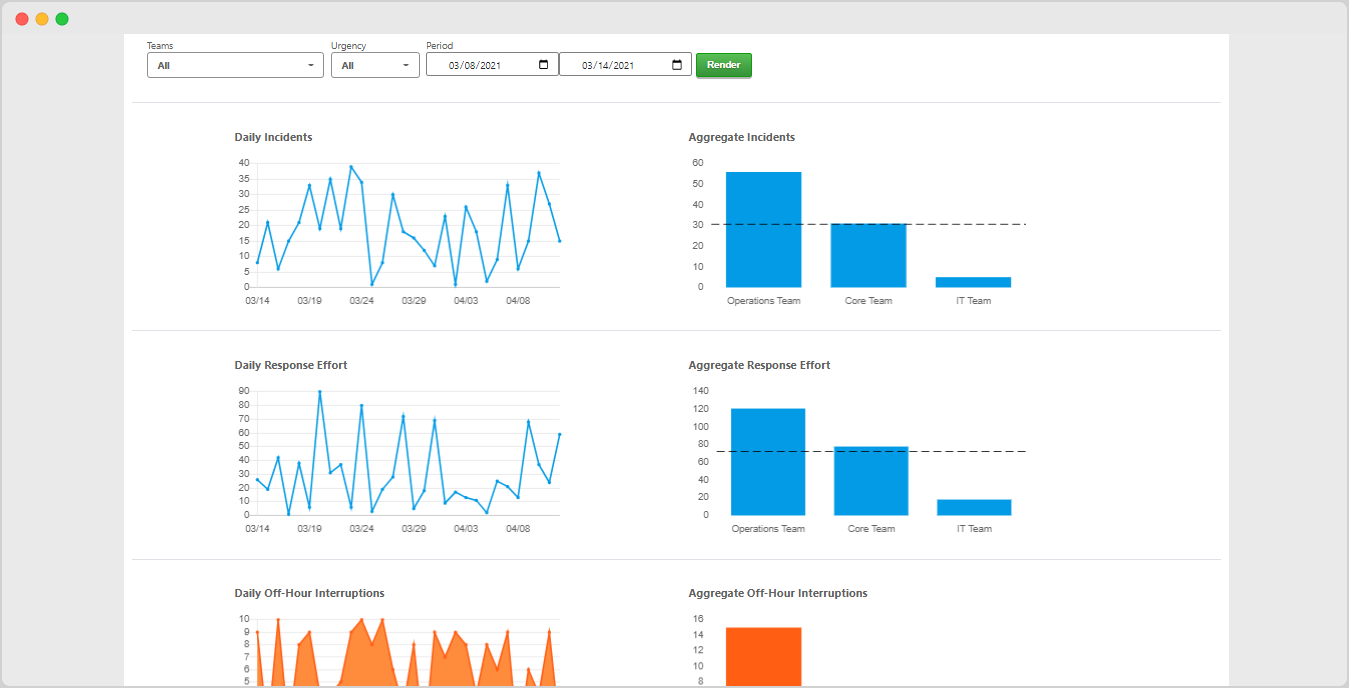
Mobile App and Chat-Ops
Respond to incidents from the tips of your fingers with the TaskCall mobile app. The app is available for both iOS and Android. Deploy on-call management and modern incident response right from your phone. Get push notifications, SMS and voice call notifications on your phone or get notified on any of your chosen chat-ops tools like Microsoft Teams and Slack. Respond to incidents from anywhere and always stay up-to-date.
Learn more